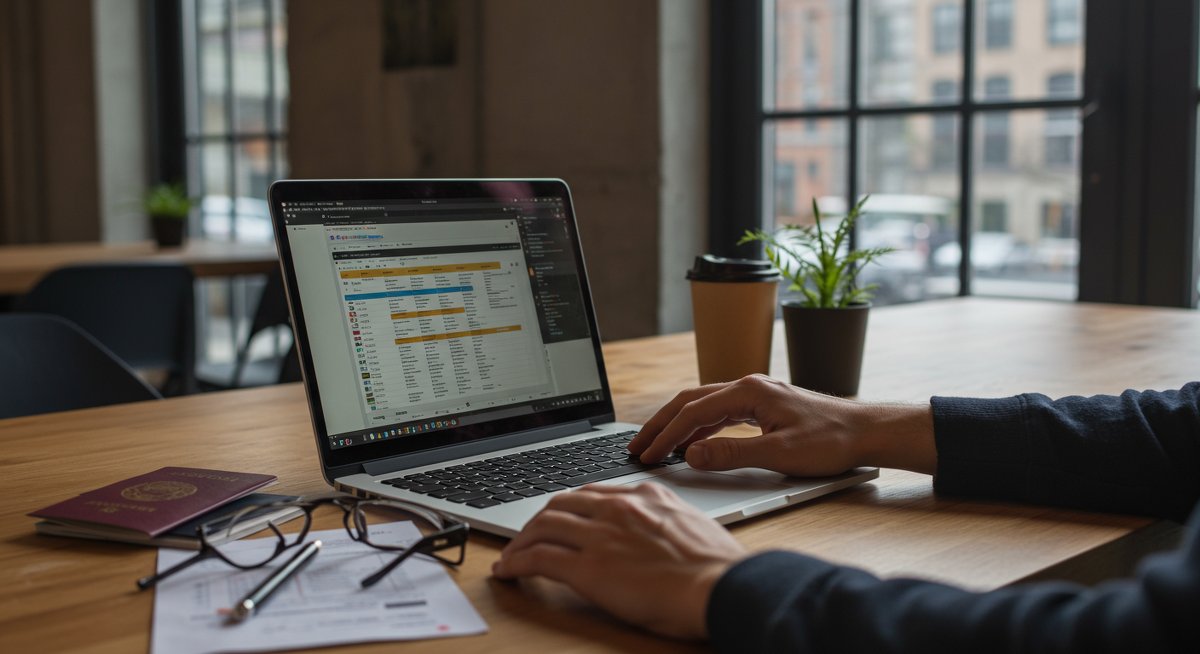
Why Embracing Nomad Finances Matters for Your Nomad Journey
Embarking on the digital nomad journey is exciting, promising freedom and adventure, but it also demands financial savvy. Many aspiring nomads underestimate the importance of managing their finances effectively. Without a solid financial plan, the dream of location independence can quickly turn into a stressful struggle. This guide, "Nomad Finances Unlocked: Budgeting & Cost-Effective Living in 2025," is designed to equip you with the essential tools and strategies for financial success. We'll cover everything from creating a realistic budget to maximizing your savings and navigating the cost of living in various global locations. By mastering these principles, you’ll not only survive as a digital nomad, but thrive.
Essential First Steps to Become a Digital Nomad
Before you pack your bags and book that one-way ticket, take a deep breath and focus on the financial groundwork. The first step is to honestly assess your current financial situation. Take stock of your income, debts, and existing savings. Then, create a budget that reflects your lifestyle. Determine how much you need to earn to cover your basic expenses, travel costs, and any additional lifestyle preferences. Finally, build an emergency fund, ideally with 3-6 months of living expenses, to cushion any unexpected financial hits. This early preparation is crucial for long-term success.
Example 1: Sarah, a freelance writer, started her nomad journey without a budget. Within six months, she was struggling, constantly worried about money, and had to take on extra, less desirable work. Had she created a budget beforehand, she would have known her minimum income needs, avoided overspending, and had a financial cushion for the inevitable ups and downs.
Example 2: John, a software developer, set up a detailed budget before leaving. He accounted for accommodation, food, transportation, and entertainment, in addition to his remote work income. By tracking his expenses using a budgeting app, he adjusted his spending habits and even invested a portion of his savings, allowing him to travel longer and more comfortably.
Example 3: Maria was diligent in creating a budget and setting up an emergency fund, but forgot about taxes. After her first year, she was hit with a hefty tax bill, because she had not planned for it. Make sure to research tax implications based on your country of origin, and set aside a portion of your income for taxes.
Common Beginner Challenges & How to Overcome Them
New digital nomads often face financial hurdles that can derail their journey. One common challenge is the unpredictable nature of income. Freelance work or contract-based jobs often have fluctuating paychecks. Another challenge is the temptation to overspend. It’s easy to get caught up in the excitement of traveling and forget about sticking to a budget. Finally, understanding the cost of living in different countries can be tricky. What seems affordable in one location might be surprisingly expensive in another.
To overcome these challenges, diversify your income streams to provide stability. Use budgeting apps to track your spending habits and stay on track. Research the cost of living in potential destinations and factor in unexpected expenses. Planning is the key to financial peace of mind.
Example 1: Mark, a beginner nomad, had a tough time when his main client cut his hours. His income dropped significantly. If he'd had other clients or diversified his income sources, he'd have weathered the storm much better. He learned the hard way the importance of not putting all your eggs in one basket.
Example 2: Emily started her nomad life with a rigid budget, but allowed no room for flexibility. She missed out on local experiences and had a harder time when emergencies popped up. A more flexible budget would have allowed her to manage her lifestyle much better and still achieve her financial goals.
Example 3: David was surprised by the cost of living in a popular nomad hub. He did not research costs beforehand and ended up spending more than he had anticipated. This underscored the importance of detailed research and making sure to compare costs such as accommodation, food, and transportation.
Tips for Success (e.g., budgeting, finding remote jobs)
Success in the digital nomad world requires more than just a laptop and a Wi-Fi connection. Budgeting is your financial compass. Use apps like Mint or YNAB (You Need a Budget) to track your income and expenses meticulously. Set financial goals, such as saving a certain amount each month or paying off debt. Prioritize your expenses, distinguishing between needs and wants. Consider using travel rewards credit cards to earn points or cashback on your spending. To find remote jobs, explore platforms like RemoteOK and We Work Remotely.
Example 1: John, a digital marketer, created a monthly budget using a spreadsheet. He set a goal to save 30% of his income. By tracking his spending and consistently adjusting his budget, he met his savings goal every month, which allowed him to travel and invest.
Example 2: Sarah, a social media manager, found a remote job on RemoteOK. She set up a separate bank account for her remote work income, making it easier to manage her finances and track her progress.
Example 3: Ben used travel rewards credit cards to pay for his travel expenses. He earned enough points to book flights and hotel stays for free, saving thousands of dollars on his travels. Make sure to pay off your credit cards in full and on time to avoid interest charges.
Building a Sustainable Nomad Lifestyle
Sustainability in the nomad lifestyle involves more than just money. It means building a lifestyle that balances your finances with your physical and mental well-being. Prioritize your health by eating well, exercising regularly, and getting enough sleep. Cultivate a sense of community by connecting with other nomads, whether online or in person. Plan for the long term by investing in your skills, diversifying your income, and planning for your future retirement. Consider the impact of your lifestyle on the environment and try to travel sustainably by using public transport.
Example 1: Lisa, a freelance writer, used the 50/30/20 rule, allocating 50% of her income to needs, 30% to wants, and 20% to savings and investments. This budgeting approach provided financial flexibility while also allowing her to enjoy her travels.
Example 2: James, a software engineer, invested in index funds and real estate. He set up automated transfers from his checking account to his investment accounts, making saving and investing a seamless part of his routine.
Example 3: Maria, a digital nomad, joined co-working spaces to connect with other travelers, creating a supportive community. She also made sure to take breaks for mental health and wellness, by traveling more slowly.

Recommended Resources for New Nomads
New digital nomads often benefit from the wisdom of experienced travelers. Here are some resources to assist you on your journey:
- Budgeting Apps: Mint, YNAB (You Need a Budget)
- Expense Trackers: Trail Wallet, Expensify.
- Remote Job Boards: RemoteOK, We Work Remotely
- Travel Insurance: SafetyWing
- International Banking: Wise
Quick Wins for Your First Nomad Trip
To get started with your first trip, focus on these quick wins: Create a basic budget and stick to it. Book affordable accommodation through sites like Booking.com or Airbnb. Find free or low-cost activities like hiking, visiting parks, or exploring local markets. Look for free Wi-Fi spots in cafes or libraries. Pack light to avoid checked baggage fees. Research the cost of living in advance. Don't overpack. Be prepared to adapt and learn. Keep a positive attitude.
Example 1: Before her first nomad trip, Emily created a simple spreadsheet budget, using free templates found online. She estimated her expenses based on research and decided on a daily budget. This simple planning gave her financial clarity.
Example 2: Mark, a beginner nomad, downloaded Wise and set up a multi-currency account to manage his finances. This helped him save on international transaction fees.
Next Steps in Your Location Independent Life
Once you've gained some experience, focus on further financial planning and optimization. Create a comprehensive investment plan to build wealth for the future. Invest in skills that increase your earning potential. Explore new income streams to diversify your finances and create stability. Continue to refine your budget and adapt to changes in your income and expenses. Most importantly, enjoy the freedom and flexibility that the digital nomad lifestyle offers, and remember that financial planning is an ongoing process.